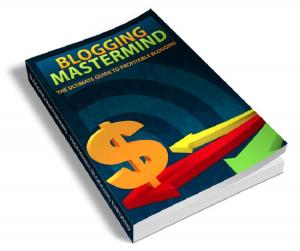Zen 108
Nonfiction, Religion & Spirituality, Inspiration & Meditation, Spirituality, Health & Well Being, Self Help, Self Improvement| Author: | Alexander Goldstein | ISBN: | 9781370152308 |
| Publisher: | Alexander Goldstein | Publication: | May 21, 2019 |
| Imprint: | Smashwords Edition | Language: | English |
| Author: | Alexander Goldstein |
| ISBN: | 9781370152308 |
| Publisher: | Alexander Goldstein |
| Publication: | May 21, 2019 |
| Imprint: | Smashwords Edition |
| Language: | English |
Written in simple language, these 108 ‘kung-an’ (koan in Japanese) embodying the experience and wisdom of the Chinese Ch’an masters have found their way into hearts of many Westerners over a century. This is because Ch'an (Zen) is not something that can be explained in words, but is a special practice with words, which is carried out for one's self-development and leads to a state of Enlightenment. If you feel an attraction to Ch'an, this captivating book can serve as a guide to lead you up to the
gateway of Ch'an through the Chinese Ch'an masters' questions and answers to enter a world where you must proceed by yourself.
Better known to the West by the Japanese pronunciation "Zen," this doctrine, in fact, stems directly from Chinese sources when the monks in many from Japan pilgrimaged to the Mainland China for learning Chinese (Ch'an) Buddhism. Till today people want to know what Ch'an actually is, and is there any difference between the Japanese conception of Zen and the Chinese Ch'an. The problem is that it is not an easy task to describe Ch'an at all. It is something that cannot be talked about nor expressed in written words. The moment language is used, we are no longer dealing with the true spirit of Ch'an. Ch'an is beyond all words.
However, Ch'an cannot be left unexpressed. To introduce the reader to the world of Ch'an, there is no an alternative but to resort to the use of language. For this reason, there are so many books written on Ch'an (Zen). So, what is Ch'an? It is the abbreviated form of the Chinese translation of the Sanskrit term "dhyana" translated as "quiet contemplation." However, Ch'an is something bigger than merely exercising of dhyana (meditation). As stated above, it is rather difficult to describe what Ch'an is through the medium of words. Some people say that Ch'an is a mysterious experience, the realm of mystery, or simply mysticism. Actually, if Ch'an is a mysterious experience, it means that it is the direct realization of the fundamental nature of the self. If it is the realm of mystery, Ch'an is the substance of the pure emptiness. If it is mysticism, Ch'an is the cornerstone of all doctrines and teachings, the source of all ideas. To define what Ch'an is in this way is admissible on paper, but it is absolutely inadequate as a means of transmitting the truth. In fact, Ch'an is neither an experience nor the realm, less still the ‘-ism.’ Ch'an is only Ch'an, neither more nor less.
Realizing the real essence of Ch'an, one can attain it as the enlightened mind of Buddhahood. It means the extensive realization of Lord Buddha Sakyamuni, of sound thought and pure feeling, who, at thirty-five years of age, sitting quietly under a Pothi tree, realized that the way to release oneself from the chain of rebirth and death lay not in asceticism but in moral purity.
Most people think that Ch'an is something subtle and mysterious, that it is so profound that it cannot be measured and is too high to be reached. These are the feelings of those who observe Ch'an from outside. But Ch'an is everywhere. It is something that can be found within every one of us. As a religious practice, most certainly, Ch'an is something absolutely personal, wherein, for the development of one's own individual consciousness, one is led towards universality.
The first essential condition for universality is to organize oneself, summoning up one's full energy and free will. That's why a practitioner of Ch'an, in every waking moment, has to correct his own experience, making it bright and free from impurities. Otherwise, the dangerous tendency to take an extra-subjective viewpoint can be developed. The only way to prevent this is to use the method of self-examination to see regularly the real nature of the self.
Written in simple language, these 108 ‘kung-an’ (koan in Japanese) embodying the experience and wisdom of the Chinese Ch’an masters have found their way into hearts of many Westerners over a century. This is because Ch'an (Zen) is not something that can be explained in words, but is a special practice with words, which is carried out for one's self-development and leads to a state of Enlightenment. If you feel an attraction to Ch'an, this captivating book can serve as a guide to lead you up to the
gateway of Ch'an through the Chinese Ch'an masters' questions and answers to enter a world where you must proceed by yourself.
Better known to the West by the Japanese pronunciation "Zen," this doctrine, in fact, stems directly from Chinese sources when the monks in many from Japan pilgrimaged to the Mainland China for learning Chinese (Ch'an) Buddhism. Till today people want to know what Ch'an actually is, and is there any difference between the Japanese conception of Zen and the Chinese Ch'an. The problem is that it is not an easy task to describe Ch'an at all. It is something that cannot be talked about nor expressed in written words. The moment language is used, we are no longer dealing with the true spirit of Ch'an. Ch'an is beyond all words.
However, Ch'an cannot be left unexpressed. To introduce the reader to the world of Ch'an, there is no an alternative but to resort to the use of language. For this reason, there are so many books written on Ch'an (Zen). So, what is Ch'an? It is the abbreviated form of the Chinese translation of the Sanskrit term "dhyana" translated as "quiet contemplation." However, Ch'an is something bigger than merely exercising of dhyana (meditation). As stated above, it is rather difficult to describe what Ch'an is through the medium of words. Some people say that Ch'an is a mysterious experience, the realm of mystery, or simply mysticism. Actually, if Ch'an is a mysterious experience, it means that it is the direct realization of the fundamental nature of the self. If it is the realm of mystery, Ch'an is the substance of the pure emptiness. If it is mysticism, Ch'an is the cornerstone of all doctrines and teachings, the source of all ideas. To define what Ch'an is in this way is admissible on paper, but it is absolutely inadequate as a means of transmitting the truth. In fact, Ch'an is neither an experience nor the realm, less still the ‘-ism.’ Ch'an is only Ch'an, neither more nor less.
Realizing the real essence of Ch'an, one can attain it as the enlightened mind of Buddhahood. It means the extensive realization of Lord Buddha Sakyamuni, of sound thought and pure feeling, who, at thirty-five years of age, sitting quietly under a Pothi tree, realized that the way to release oneself from the chain of rebirth and death lay not in asceticism but in moral purity.
Most people think that Ch'an is something subtle and mysterious, that it is so profound that it cannot be measured and is too high to be reached. These are the feelings of those who observe Ch'an from outside. But Ch'an is everywhere. It is something that can be found within every one of us. As a religious practice, most certainly, Ch'an is something absolutely personal, wherein, for the development of one's own individual consciousness, one is led towards universality.
The first essential condition for universality is to organize oneself, summoning up one's full energy and free will. That's why a practitioner of Ch'an, in every waking moment, has to correct his own experience, making it bright and free from impurities. Otherwise, the dangerous tendency to take an extra-subjective viewpoint can be developed. The only way to prevent this is to use the method of self-examination to see regularly the real nature of the self.















